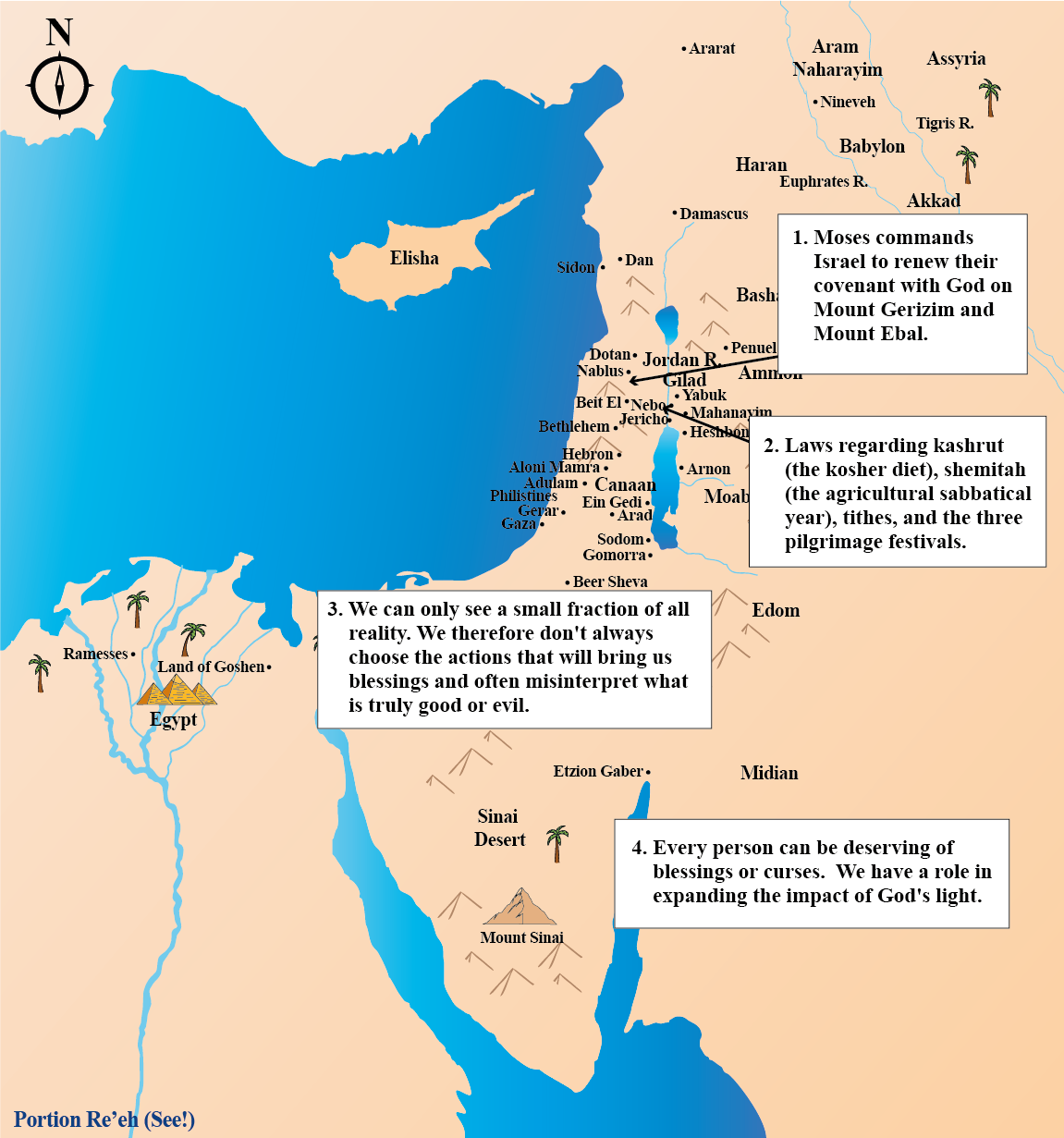
Every person can be deserving of blessings or curses
“Behold, I set before you this day a blessing and a curse; A blessing, if ye obey the commandments of the LORD your God, which I command you this day…Thou shalt truly tithe all the increase of thy seed, that the field bringeth forth year by year. And thou shalt eat before the LORD thy God, in the place which he shall choose to place his name there, the tithe of thy corn, of thy wine, and of thine oil, and the firstlings of thy herds and of thy flocks; that thou mayest learn to fear the LORD thy God always” Deut. 14:22 – 23
- Every person can be deserving of blessings or curses. The outcome depends on our behavior and choices. Human beings must never feel like victims – because our future is in our hands. Furthermore, every person has the ability to impart blessings unto others and thus expand their scope of influence. “Every person is obligated to say: ‘The world was created for me’” (Babylonian Talmud, Tractate of Sanhedrin, 37a). Our potential to influence individuals and the community is immense. It cannot be measured qualitatively – but rather by the magnitude of its impact.
- Tithes and donations to the Temple, the priests, and the Levites, as well as making pilgrimage to Jerusalem, are opportunities for the Israelites to gather, interact, bless each other, and engage in kind actions.
Worship of God must be carried out gleefully and together with others
“And there ye shall eat before the LORD your God, and ye shall rejoice in all that ye put your hand unto…And ye shall rejoice before the LORD your God, ye, and your sons, and your daughters, and your menservants, and your maidservants” Deut. 12:12
- Moses underscores that after the Israelites enter the land and build a Temple to God, the most important thing they must do is rejoice. His intention is that the Israelites must strive to attain a state of happiness that is shared by all – families, priests, widows, slaves, and so on. True bliss can only become a reality when it’s universal. In other words, when no individual is left suffering or lonesome, then the Creator Himself can celebrate amongst His creatures. This is the greatest goal entrusted by Moses to the Israelites – collective rejoicement mixed with kindness.
Pearls of Divine Wisdom: “See”
- The main question arising from the first verse of this Parasha (Deuteronomy 11:26) is not “what is a curse?” or “what is a blessing?” but rather “what does God command us to ‘see’?”
- We can only see a small fraction of all of reality. We therefore don’t always choose the actions that will bring us blessings and often misinterpret what is truly good or evil.
- Even if we sin, we will have an opportunity to repair our actions. Even if we are envious, we can still merit grace. Curses and blessings blend inside of us.
- The perceptions informing our actions are what shape our reality. The main thing we must request is for our eyes to be opened. However, the question that then arises is: what eyes should we ask for?
- We must always try to see “the bigger picture.” We need to see the good that underlies every obstacle and challenge, judge situations and people favorably, and criticize less. Additionally, we should always remember that the act of giving is itself a great blessing.
- Every person can be deserving of blessings or curses. We have a role in expanding the impact of God’s light. Every person must believe that the world was created for them, promote good, and fight evil.

Compassion is striving to love and relieve the pain of others, just as we would wish to relieve our own pains.

